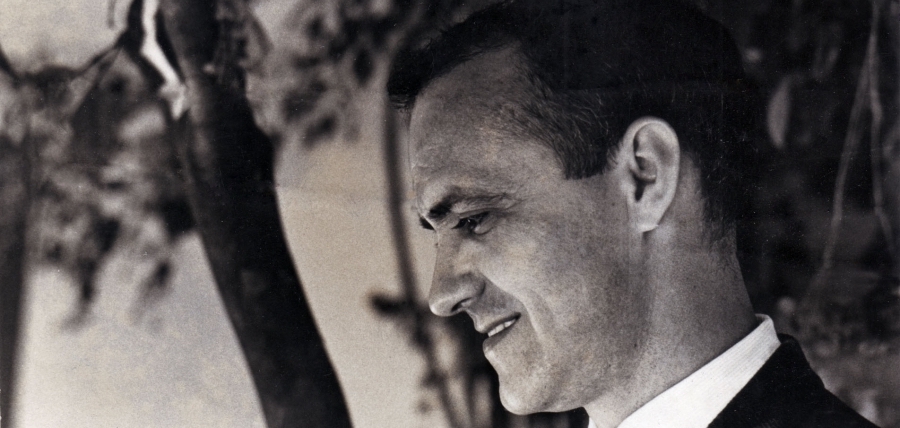I am forever asking writers, “Who are the writers who make you want to write.” For me, the first and best answer to that question is Charles Portis, the novelist best known for True Grit. I don’t suppose I could ever do what he did as a storyteller, but he has always made me want to try. I am sorry to say that Mr. Portis died yesterday, at the age of 86, in Little Rock, Arkansas.
In 1998, Ron Rosenbaum published a paean to Charles Portis in Esquiremagazine, praising him as “our least-known great writer”:
Perhaps the most original, indescribable sui generis talent overlooked by literary culture in America. A writer who—if there’s any justice in literary history as opposed to literary celebrity—will come to be regarded as the author of classics on the order of a twentieth-century Mark Twain, a writer who captures the soul of America, the true timbre of the dream-intoxicated voices of this country, in a way that no writers’-workshop fictionalist has done or is likely to do…
Tom Wolfe once spoke about the way city-born creative-writing types go directly from East Coast hothouse venues to places like Iowa City, where “they rent a house out in the countryside, and after about their fifth conversation with a plumber named Lud, they feel that they know the rural psyche.”
Charles Portis is the real thing to which these grad-school simulacra can only aspire in their wildest dreams. He is a wild dreamer of a writer.
That sounds just about right to me. The fact that True Grit a) is a Western, b) was a best-seller, and c) has been made into two commercially successful movies should not distract you from the fact that it is a remarkable literary achievement.
Here’s are the first two sentences of True Grit:
People do not give it credence that a fourteen-year-old girl could leave home and go off in the wintertime to avenge her father’s blood but it did not seem so strange then, although I will say it did not happen every day. I was just fourteen years of age when a coward going by the name Tom Chaney shot my father down in Fort Smith, Arkansas, and robbed him of his life and his horse and $150 in cash money plus two California gold pieces that he carried in his trouser band.
Two sentences. Ninety-two words. It’s as if the time, the place, a narrative voice, and a character have all sprung, fully formed, out of nothingness.
I was quite a small boy when I was first exposed to True Grit. My teetotaling mother often quoted Mattie Ross, the book’s narrator, who explained why she would never drink liquor: “I would not put a thief in my mouth to steal my brains.”
Mattie Ross is self-righteous, legalistic, remorseless, and surprisingly likable. Likable characters who would be intolerable in real life were a specialty of Charles Portis. Rooster Cogburn, the crude, heavy-drinking Federal Marshall whom Mattie Ross hires to track down her father’s killer, is another such character. He’s one of the most quotable figures in American literature. Here’s a sample of his talk; I wouldn’t say I chose it at random, but I will say that I could have chosen two dozen other passages that are just as brilliant:
If you don’t have no schooling you are up against it in this country, sis. That is the way of it. No sir, that man has no chance any more. No matter if he has got sand in his craw, others will push him aside, little thin fellows that have won spelling bees back home.
As much as I love True Grit, I think I love Portis’s third novel, The Dog of the South, even more. Narrator Ray Midge is one of those well-educated Southerners who has neither let his education hurt him or improve him. When the book opens, Midge’s wife has run off with his friend (and her ex-husband) Guy Dupree. Midge is sorry to lose his wife, but his bigger concern is his car: the pair have taken his Ford Torino and left Midge with Dupree’s car. Midge tracks them (and his car) from Little Rock through Texas and into Mexico and beyond.
Here he was then, cruising the deserts of Mexico with my Ford Torino with my wife and my credit cards and his black-tongued dog. He had a chow dog that went everywhere with him, to the post office and ball games, and now that red beast was making free with his lion feet on my Torino seats.
In exchange for my car he had left me his 1963 Buick Special. I had found it in my slot at the Rhino Apartments parking lot, standing astride a red puddle of transmission fluid. It was a compact car, a rusty little piece of basic transportation with a V-6 engine. The thing ran well enough and it seemed eager to please but I couldn’t believe the Buick engineers ever had their hearts in a people’s car. Dupree had shamefully neglected it. There was about a quarter-turn of slack in the steering wheel and I had to swing it wildly back and forth in a childlike burlesque of motoring. After a day or two I got the hang of it but the violent arm movements made me look like a lunatic.
Sorry for the long quotation, but I can’t help myself.
Nora Ephron said of Charles Portis, “He thinks things no one else thinks.” A chow dog making free on Torino seats. Midge swinging the steering wheel wildly “in a childlike burlesque of motoring.” What sort of man thought of such things? Who will think of them now? Nobody, I suppose.
Rest in peace, Charles Portis.
For further reading: The New York Times obituary of Mr. Portis is worth a read.








